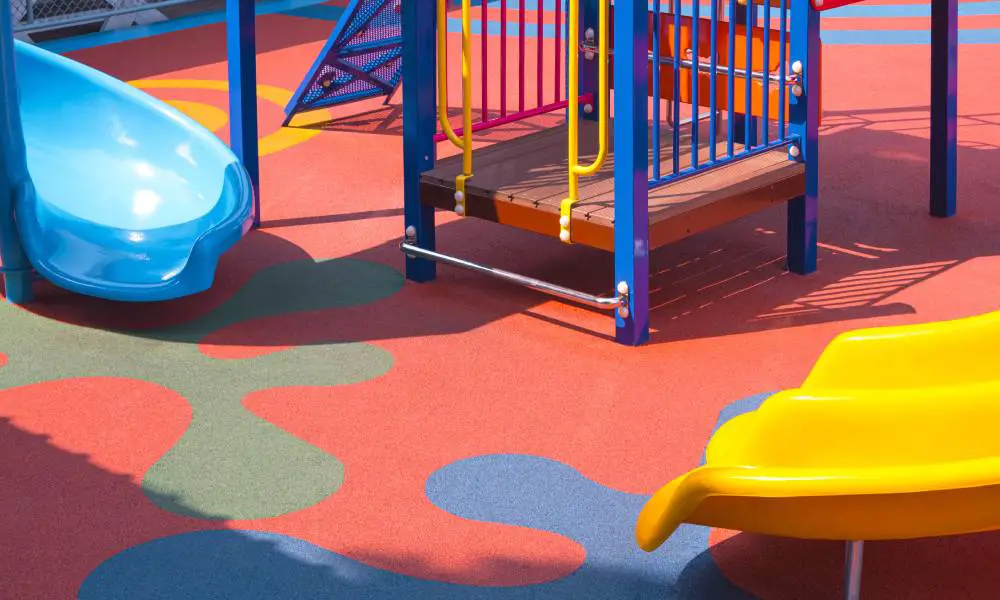

Playgrounds are a haven for kids, a place where they can run, climb, and explore their imaginations. Parents also know that playground safety is a top priority. A critical aspect of playground safety is the surface material used underneath the equipment. Each material provides varying levels of comfort and protection.
In this brief guide, we explore the different types of playground surfacing materials you might encounter and how to navigate these safety standards for your children.
When parents think about playground safety, they often focus on the equipment. However, the ground beneath the swings and slides is equally important. Playground surfacing materials play a crucial role in preventing injuries and are one of the top safety features every playground must have.
The right surface can significantly reduce the risk of fractures, cuts, and scrapes. This makes it essential to understand the different options available and how they can benefit or affect your children while playing.
Pour-in-place rubber surfacing is a popular choice for many playgrounds. This material uses recycled rubber and provides a seamless and cushioned surface.
One of the standout features of pour-in-place rubber surfacing is its safety for kids. It effectively absorbs impact and reduces the likelihood of injury from falls. Additionally, this material is highly durable and can withstand various weather conditions, making it a long-lasting option for playgrounds.
Engineered wood fiber is another excellent choice for playground surfacing. This natural material contains processed wood and provides a soft and cushioned surface.
Engineered wood fiber is highly effective in absorbing impact, thereby reducing the risk of injuries. Its natural appearance blends well with outdoor settings, which is why it’s a popular choice for community parks.
Artificial turf is becoming increasingly popular on playgrounds due to its low maintenance and cushioning properties. This synthetic material mimics the look and feel of natural grass but offers a more consistent and durable surface. Artificial turf provides excellent shock absorption, which is perfect for children to play on safely.
Rubber mulch is a versatile and environmentally friendly playground surfacing material. Made from recycled tires, rubber mulch also provides excellent shock absorption and reduces the risk of injuries from falls. It’s also highly durable and can withstand various weather conditions, so parks and playgrounds benefit from its long-term durability.
It’s common to stumble upon a community park or playground that may not feature the safest surface materials. In the event you find a park or playground with these materials, it’s essential to understand the risks associated with them and make a decision based on your preferences. While it’s possible for children to leave these playgrounds unscathed, you know your children and their playing styles best. These unsafe surface materials may include:
Choosing the right playground surfacing material is crucial for ensuring the safety and enjoyment of children. From pour-in-place rubber to artificial turf, each material offers unique benefits and contributes to a safer play environment. With a closer look at the different playground surfacing materials, you can make wise, informed decisions about where your kids play.
There’s nothing worse than lighting a new candle and watching it sputter out, tunnel, or…
Discover how woven metal fabric transforms restaurant design with its versatility, from feature walls to…
Upgrading your workspace? Get inspired by design ideas for materials, lighting, and amenities, and tips…
In recent years, the global interest in peptides has surged due to their wide-ranging benefits…
Maximize your workspace without overspending. Explore practical ways to expand your office using smart layouts,…
Discover how to create a thriving STEM community through hands-on, collaborative projects that are perfect…